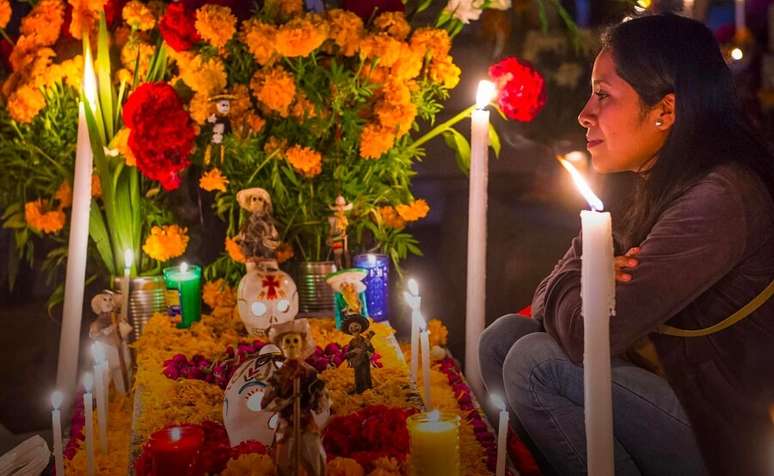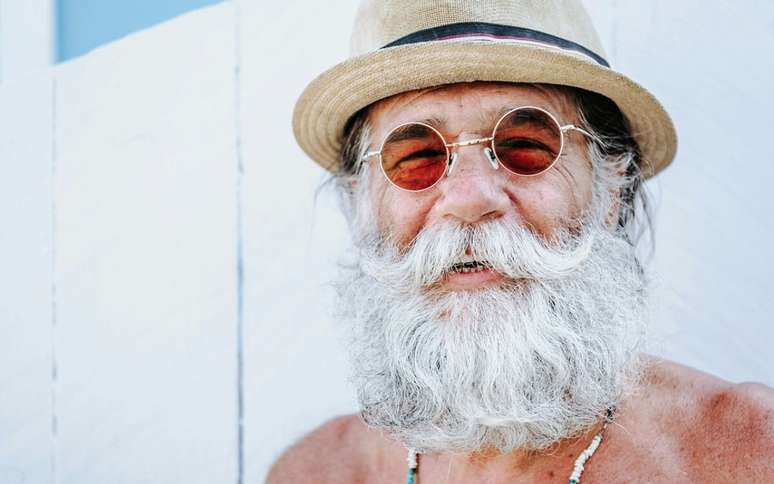Dying is synonymous with sadness for many people, but not for everyone. There are places that celebrate when someone passes by
We have been taught to think of death as something dark, sad, gloomy, we avoid talking about it as if in this way we could escape something inevitable, the finiteness of life. In some cultures, dying is not the end of everything, but the beginning of a new life on another plane, another existence without pain, sorrows, resentments, thus being much better than ours.
For this reason, in many countries, death is celebrated and farewell rituals become real celebrations that can include food, drinks, music and dance.
Discover five cultures where dying is a celebration.
Mexico
When we talk about celebrations and death, Mexico is the first country we think of. The celebration of Día de Los Muertos (Day of the Dead) is famous throughout the world. The equivalent of our All Souls Day is a festival that celebrates the memory of the deceased with music, food and traditional costumes.
Mexican culture sees death as a natural way to free oneself from the vanities and futility of life, so talking about death is not taboo for them.
Japan
Western culture is rich and very different from ours, which means they have a different perception of death. The Buddhist religion, which is one of the predominant religions in the country, believes that the end of life is something natural, an opportunity to achieve a peaceful state of mind.
Every summer a ritual called the Obon Festival takes place, which consists of an event in which families clean and decorate graves, light lanterns and perform traditional dances to welcome the spirits with great joy, since the Japanese believe that the spirits of their ancestors return from the world of the dead to pay a visit. Other rituals include prayer services in temples and the preparation of special meals.
India
India is a very populous country with a culture that hides some particularities. According to Hinduism, for example, the religion of a large part of the population, there is the certainty of eternal life on another plane, therefore death is the liberation from material existence to spiritual existence, therefore Indians face the end of life without fear or sadness.
The bodies are cremated on the banks of the Ganges River, a sacred place according to local culture. For Hindu belief, this action leads the soul to achieve liberation from the cycle of resurrections, which binds man to earthly suffering.
China
Chinese culture and the relationship that the population has with death is influenced by current religions such as Taoism and Buddhism, as well as Confucianism, which is not strictly a religious doctrine, but a philosophical system of the Chinese master Confucius.
For the Chinese there is a deep belief in the continuation of life after death. They also maintain a respect for deceased ancestors and believe that these people have influence on the lives of future generations, so rituals and offerings are performed both to honor the ancestors and to maintain ties between the living and the dead.
Ghana
A few years ago, a video, the Ghanaian pallbearers meme, became known on the internet. The scene may seem strange at first glance, but it is a tradition in the African country.
In fact, the vigils usually last several days, people dress in colorful clothes, there are drums, music and lots of dancing. In the religious belief of Ghanaians, death is the continuation of life on Earth, where there is no room for sadness.
João Paulo Magalhães is a partner ofColina Group
.
Source: Terra
Rose James is a Gossipify movie and series reviewer known for her in-depth analysis and unique perspective on the latest releases. With a background in film studies, she provides engaging and informative reviews, and keeps readers up to date with industry trends and emerging talents.







